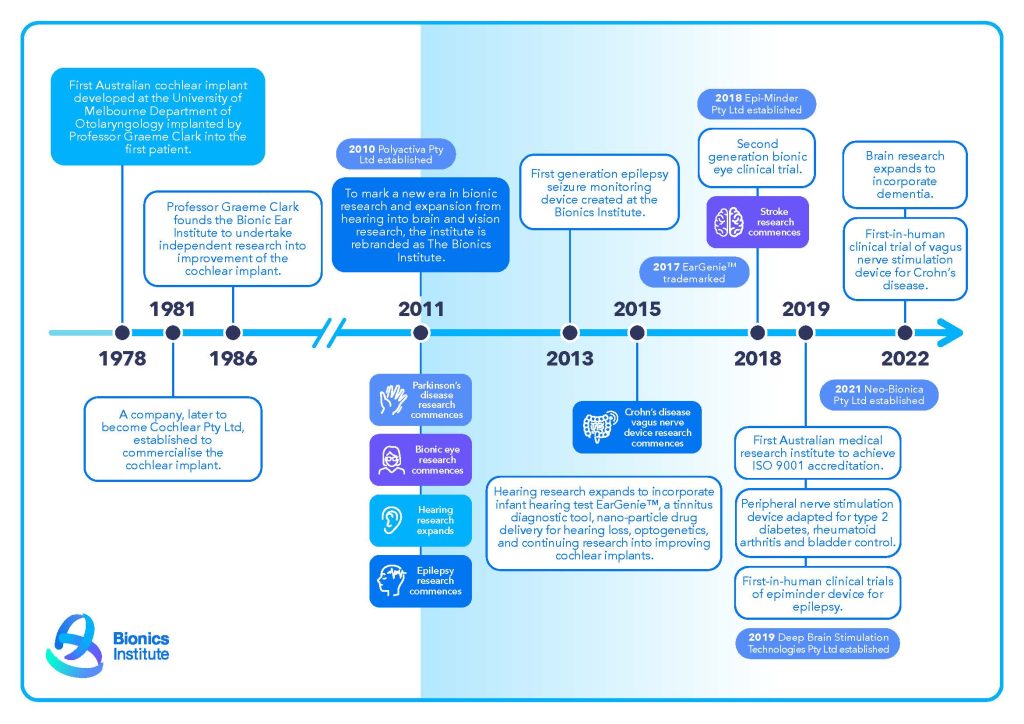The Bionics Institute has an impressive track record of translating medical device concepts into clinical reality, dating back to 1986 when it was founded by Professor Graeme Clark.
Professor Clark led the team that created Australiaʼs cochlear implant, which has given hearing to more than 600,000 deaf people around the world.
To read more about Professor Clark’s achievements, click here.
Since then, Bionics Institute researchers have developed medical devices that will change the lives of people living with Alzheimer’s disease, hearing impairment, Parkinson’s disease, Crohn’s disease, rheumatoid arthritis and stroke. This includes:
Australiaʼs first-generation bionic eye prototype implanted in clinical trials in 2018, commercialised by Bionic Vision Technologies.
An epilepsy seizure monitoring device, commercialised by Bionics Institute spin-off company Epi-Minder Pty Ltd.
An adaptive deep brain stimulation system for Parkinsonʼs disease, commercialised by Bionics Institute spin-off Deep Brain Stimulation Technologies Pty Ltd (DBS Tech)
An innovative vagus nerve stimulation device to treat inflammatory bowel disease, which is moving into clinical trials and also being adapted to treat rheumatoid arthritis.
Novel drug delivery methods for hearing loss; new diagnostic tools for improved diagnosis of infant hearing and tinnitus; and cochlear implant research.
QMS ISO 9001

In 2019, the Bionics Institute became the first and only Australian Medical Research Institute to receive an internationally recognised accreditation for our Quality Management System (ISO 9001) covering all operations, research and development processes. This accreditation reinforces our commitment to generating real clinical impact from our research and differentiates us from other MRIs and Universities.
Neo-Bionica

In 2021 we launched the spin-off company Neo-Bionica, a joint initiative of the Bionics Institute and the University of Melbourne, which combines the engineering expertise and state-of-the-art facilities needed to develop medical devices from initial concept to first-in-human prototypes for clinical trials.
